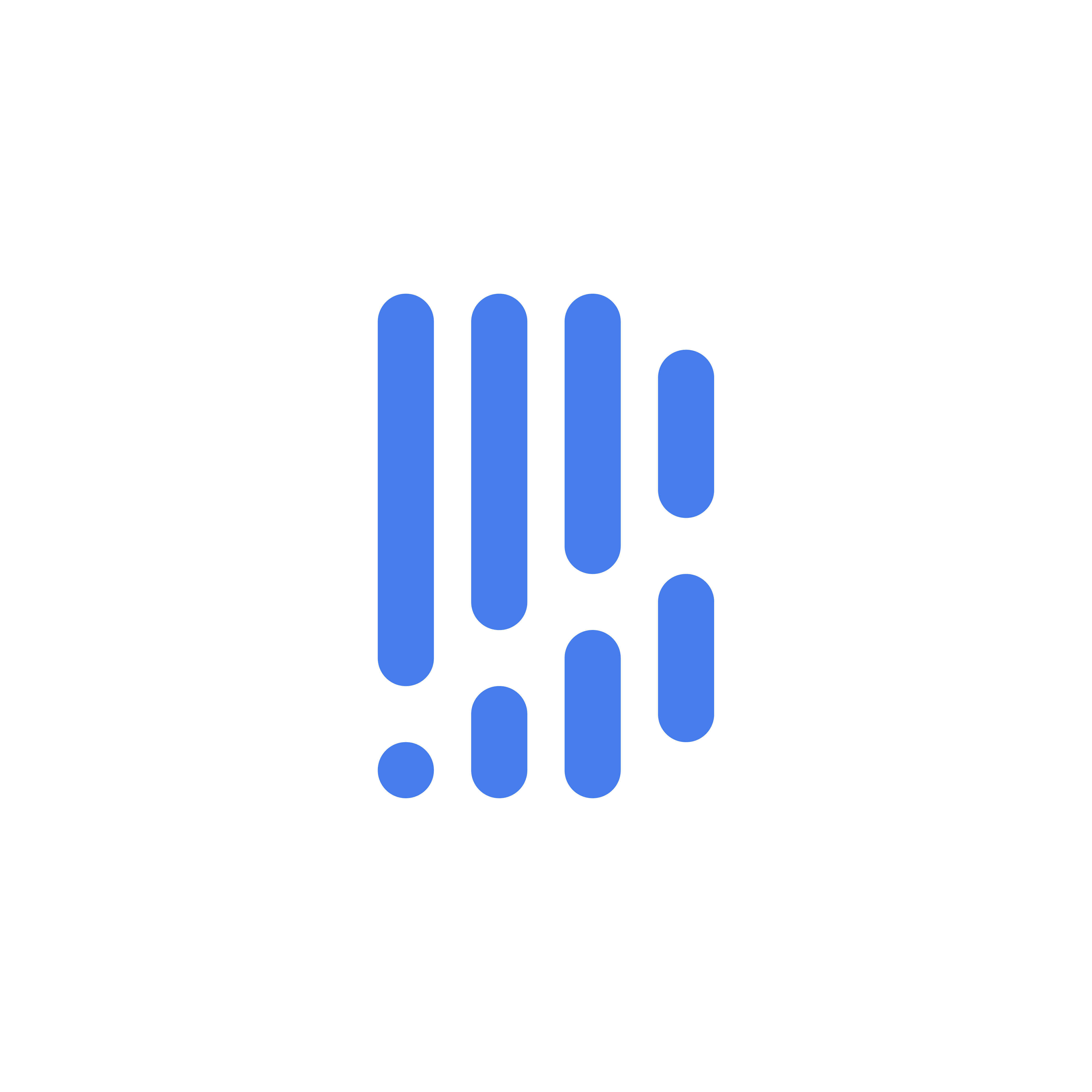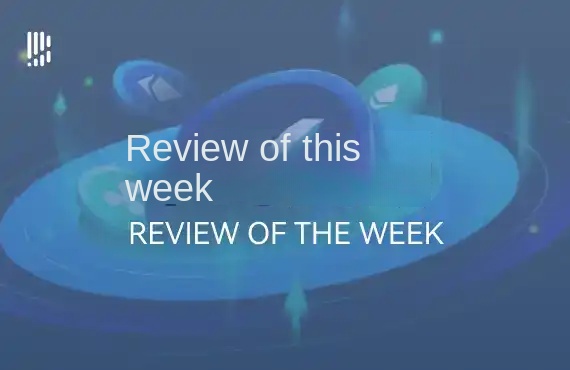Financing Highlights | Binance leads investment in decentralized AI blockchain platform Sahara AI; Haun Ventures leads investment in risk analysis service provider Chaos Labs
According to BlockBeats statistics, the total number of financings last week was 19, an increase from the previous time, with a total amount of approximately US$218.9 million and an average financing amount of US$11.5211 million. Among them, the infrastructure field occupies the majority, the Web3.0+AI field is relatively large, the digital asset management/payment field has increased, the Metaverse/GameFi field, DeFi field and other fields have less financing, and the social/creator economy field and NFT/digital fashion field are not available. The following figure shows the proportion of financing in each sector last week:

Metaverse/GameFi
In the Metaverse/GameFi field, there were 2 financings with a total amount of US$8 million, accounting for 3.65% of the total financing last week.
Autoverse Studios

On August 14, according to Venturebeat, Web3 game studio Autoverse Studios completed $8 million in financing, led by White Star Capital, with participation from Sfermion, RockawayX, Ocular, Sidedoor Ventures, MCE Group, Saison Capital and LiquidX.
The funds will be used to develop its social drag racing Web3 game Auto Legends, with the goal of becoming the first game to bring Web3 ownership and trading mechanisms to a large number of traditional free game players around the world.
Auto Legends will be a free game that can be experienced on PC, Mac, iOS and Android platforms. But if players want more depth, they can choose to take advantage of Web3 features. The game is now available on PC and Mac in the closed alpha testing environment of the Epic Games Store.
Other financings in the Metaverse/GameFi space include:
On August 16, Web3 gaming platform and Animoca Brands subsidiary GAMEE announced the completion of a new round of financing, with TON Ventures participating. The new funds will support GAMEE's WATCoin ecosystem (including the WatBird Mini App project).
It is reported that GAMEE will further integrate TON-based digital assets (such as TON-backed tokens and NFTs) into GAMEE's Telegram Mini App to enhance user engagement.
DeFi
A total of 2 financings were raised in the DeFi field, with a total amount of more than US$6.3 million, accounting for 2.88% of the total financing last week.
Ion Protocol

On August 12, according to The Block, the pledger liquidity release agreement Ion Protocol completed US$4.8 million in financing, with participation from Gumi Capital Cryptos, Robot Ventures, BanklessVC, NGC Ventures, Finality Capital and SevenX Ventures, bringing its total financing to US$7 million.
Ion Protocol is a lending platform designed to support staking and re-staking assets. It allows users to participate in a variety of lending markets, from leveraged staking yields to point multiplier pools and more. Ion focuses on introducing staking-based mechanisms into DeFi, creating a better lending experience for users, thereby earning more income while reducing risks.
It is reported that the new funds will be used to support and develop a native revenue model called Nucleus, which aims to help solve the monetization problems of rollups and appchains, and may help promote new decentralized application use cases in its ecosystem.
Goldilocks DAO

On August 16, according to official news, Berachain ecosystem Goldilocks DAO announced the completion of a $1.5 million strategic round of financing. This round of financing was jointly led by Shima Capital and Hack VC, and Public Works, Iberia Capital, Rana DAO, Atka Incubator and several angel investors participated.
Goldilocks is a DAO dedicated to developing custom DeFi infrastructure for Berachain. It consists of three main parts: Goldiswap, a novel AMM for managing the supply, price and behavior of LOCKS (DAO's governance token). Goldilend, an innovative NFT lending platform built specifically for Bong Bear NFT and its variants. GoldiVaults, a vault that allows users to trade and speculate on future earnings of yield positions on Berachain native and blue-chip DeFi protocols.
It is reported that Goldilocks is building a set of interconnected decentralized finance (DeFi) products on Berachain. The company has developed an NFT lending and yield trading platform, making full use of Berachain's "unique culture" and technical architecture.
Infrastructure
A total of 9 financings in the infrastructure field, with a total amount of more than US$129.1 million, accounting for 58.98% of the total financing last week.
Chaos Labs

On August 15, according to CoinDesk, Chaos Labs, a blockchain risk analysis service provider, completed a $55 million Series A financing round, led by Haun Ventures, with participation from F-Prime Capital, Slow Ventures and Spartan Capital, as well as Lightspeed Venture Partners, Galaxy Ventures and PayPal Ventures.
Chaos Labs was founded in 2021 to meet the growing demand for automated risk management in decentralized finance (DeFi). The project has tripled its customer base in the past year, helping more than 20 protocols such as Aave, GMX and Jupiter protect, monitor and develop their products.
Chaos Labs has dashboards, real-time data oracles, risk alerts and other tools designed to automate certain risk management tasks, making DeFi platforms more sensitive to market fluctuations and less susceptible to human error.
WSPN

On August 16, the stablecoin 2.0 infrastructure company WSPN completed a $30 million seed round of financing, led by Foresight Ventures and Folius Ventures, with participation from Hash Global, Generative Ventures, Yunqi Partners and RedPoint China.
According to reports, WSPN (Worldwide Stablecoin Payment Network) is a new generation of stablecoin (Stablecoin2.0) infrastructure company, aiming to provide users with more secure, efficient and transparent payment solutions by establishing a global compliance system and a new payment ecological network. WSPN includes core members such as CTH, Paxos and Visa, and has more than 10 years of experience in payment and stablecoin operations.
At present, WSPN has compliance licenses in many major countries and regions, and is supported by more than 30 trading platforms, more than 10 mainstream wallets, and dozens of large payment institutions and market makers.
Essential

On August 13, the intent-based encryption infrastructure company Essential completed a $11 million Series A financing round, led by Archetype, with IOSG, Spartan, Mirana, Amber Group, Maven 11, Bodhi Ventures, Big Brain Holdings, Heartcore Capital, Selini, DCLM and PropellerHeads, as well as founders and angel investors from Celestia, Hashflow, Enso, Barter, LI.FI, Astaria, GlueX, Bebop, Sorella and other companies participating.
Essential is the first declarative blockchain. Essentially, the declarative approach involves reframing interactions in terms of outcomes rather than instructions. The funds from this round of financing will be used to advance Essential's goal of redesigning blockchain interactions from first principles using a declarative, intentional architecture, making blockchain technology more intuitive and easier to use for developers and users around the world.
In addition, Essential launched Pint, a constraint-based programmable intent language for developing declarative blockchain applications, allowing developers to directly constrain states on the Essential blockchain. Key components of the release include the Pint language, Pre-Alpha Devnet, and developer documentation.
Infrastructure The rest of the financing includes:
On August 13, Reddio, a high-performance parallel Ethereum Layer2 network, announced the completion of a seed round of financing, co-led by Paradigm and Arena Holdings. The project was founded by Neil, who graduated from Stanford Business School and the National University of Singapore. The team has developed a high-performance distributed database, which is currently used by Bybit, OKX, and Square for a long time. Reddio's main direction is parallelism and hardware acceleration. The project has launched a pledge and task system.
On August 14, modular smart account developer Rhinestone completed a $5 million seed round of financing, led by 1kx. CoinFund, Lattice, Heartcore, Yuan Ventures and others participated in the investment. Rhinestone is building a platform to realize a secure ecosystem for smart account modules and enable permissionless wallet innovation. Rhinestone will enable any developer to build a smart account module that can be paired with a front-end component so that users can easily install, delete or replace their accounts. Previously, Rhinestone was selected as one of the 18 projects in the Ethereum Foundation's ERC-4337 account abstraction funding round.
On August 14, Parfin, an Ethereum Layer 2 crypto infrastructure developer, raised $10 million in its Series A round of funding, and is expected to raise another $16 million in the future. ParaFi Capital led the investment, with participation from Framework Ventures, L4 Venture Builder, and Núclea. Parfin plans to use the funds to continue developing its Rayls network, a permissioned EVM blockchain for enterprise applications such as tokenization, central bank digital currencies (CBDCs), and intra-institutional transactions. The system requires all accounts to follow KYC compliance while maintaining user privacy and being able to connect to the DeFi world through the Rayls public chain. Parfin also provides stablecoins, fiat deposits and withdrawals, and crypto brokerage services.
On August 15, Bitcoin network infrastructure developer Satflow completed a $7.6 million seed round of financing, led by Variant, with participation from Nascent, UTXO Management, Coinbase Ventures, Hash3, Bitcoin Frontier Fund, etc. Satflow said its goal is to build the best trading experience on Bitcoin. The project believes that Bitcoin DEX ignores professional traders who need advanced order types, high-speed data and liquidity pools. Satflow aims to bring Bitcoin L1 to a quality that can be participated by institutions and enhance decentralization.
On August 16, Web3 liquidity provider Orderly Network completed a $5 million strategic financing, with participation from OKX Ventures, Manifold Trading, Presto Labs, LTP, Nomad Capital and Origin Protocol. Orderly Network aims to solve DeFi liquidity problems. Orderly Network plans to use the funds to develop new products and enhance its on-chain liquidity. In addition, Orderly is preparing for its token generation event (TGE), in which Orderly token stakers will receive 60% of Orderly's net transaction fees.
On August 17, the Holonym Foundation, a decentralized network digital identity security development organization, announced the completion of a $5.5 million seed round of financing. This round was led by Finality Capital and Paper Ventures, with participation from Draper Dragon, Arrington Capital, Lightshift and other institutions. It is reported that the Holonym Foundation is building key middleware and applications to enhance the digital identity capabilities of every citizen through cryptography by empowering Web3 users to own, manage and selectively share data, and providing privacy and security guarantees.
Digital Asset Management/Payment
There was a total of 1 financing in the digital asset management/payment field, with a total amount of more than US$15 million, accounting for 6.85% of the total financing last week.
Sling Money

On August 15, the stablecoin payment platform Sling Money announced the completion of a $15 million Series A financing round, led by Union Square Ventures, with participation from Ribbit Capital and Slow Ventures.
It is reported that transfers on Sling Money support the use of Pax Dollar (USDP), which is a dollar-backed stablecoin issued by Paxos Trust Company. The company previously received a $5 million seed round led by Ribbit Capital.
Web3+AI
A total of 4 financings in the Web3+AI field, with a total amount of more than $60.5 million, accounting for 27.64% of the total financing last week. Including:
On August 14, AI smart layer Rivalz Network completed $9 million in financing, with participation from Delphi Ventures, D1 Ventures, Gate.io, Magnus Capital and Cogitent Ventures. Rivalz Network aims to transform the AI space by introducing an AI intelligence layer, unlocking the next phase of AI development and driving autonomous intelligence by providing a hybrid and novel decentralized storage and connectivity network approach.
On August 14, the decentralized AI blockchain platform Sahara AI announced the completion of US$43 million in financing, led by Binance Labs, Pantera Capital and Polychain Capital, with participation from Samsung, Matrix Partners, Siam Commercial Bank of Thailand, Foresight Ventures, dao5, Alumni Ventures, Geekcartel, Nomad Capital, Mirana Ventures and others. The financing will be used to further expand its global team, improve the performance of its AI blockchain, and accelerate the construction of its developer ecosystem.
On August 15, Crunch Lab, a core contributor to the AI platform CrunchDAO, completed a $3.5 million seed round of financing, led by Multicoin Capital, with participation from Factor Capital, Fabric VC, and Elixir Capital, bringing the total financing amount to $5.3 million. Crunch Lab is a core contributor to CrunchDAO, a platform for artificial intelligence researchers to participate in distributed machine learning competitions. In addition to other rewards, CrunchDAO members can also earn CRNCH tokens by participating in the competition. CRNCH tokens give holders governance rights and other benefits of CrunchDAO.
On August 16, KIP Protocol, a decentralized underlying protocol focusing on AI, announced the completion of a $5 million private placement financing, which was co-led by Animoca Ventures and Tribe Capital. Other investors include GBV Capital, DWF Ventures, Morningstar Ventures, etc. As of now, KIP Protocol has completed a total of $10 million in financing.
As the world's first underlying protocol supporting the decentralized retrieval-augmented generation network (dRAG), KIP Protocol provides the most advanced Web3 infrastructure, enabling App developers, model makers, and data owners to achieve seamless deployment, monetization, and full property rights in Web3. KIP Protocol provides comprehensive tools and services, and is committed to breaking the monopoly barriers in the AI industry and providing a fairer environment for AI developers and consumers. This round of financing will further promote KIP Protocol's mission of decentralized AI development, and drive unprecedented applications and innovations by creating powerful and secure decentralized AI solutions.
Previously, KIP Protocol officially announced its cooperation with Moemate, a leading AI Agent entertainment platform, to lead 3 million Web2 AI users into Web3. KIP also obtained the management rights of a $10 million fund provided by Open Campus, and worked together to lay out and develop the "DeAI+Education" map, and worked together to build a leading, decentralized AI-driven online learning education platform OCU, providing a personalized learning experience and redefining decentralized education. Through these collaborations, KIP has realized real use cases for decentralized AI.
Other financing
There was 1 other financing, and the total amount was not disclosed. Including:
On August 15, the Web3 membership community ARC Community announced the completion of a community round of financing of more than US$4.5 million. According to reports, ARC is connecting the most influential and influential people in the Asian diaspora around the world to contribute ideas, resources and networks to the first social entrepreneurship studio. The long-term vision and common goal of ARC Community is to promote the development of the Web3 field in Asia through its social entrepreneurship studio, and to put its community at the forefront through collective value creation.

Welcome to join the official BlockBeats community:
Telegram Subscription Group: https://t.me/theblockbeats
Telegram Discussion Group: https://t.me/BlockBeats_App
Official Twitter Account: https://twitter.com/BlockBeatsAsia
 Forum
Forum OPRR
OPRR Finance
Finance
 Specials
Specials
 On-chain Eco
On-chain Eco
 Entry
Entry
 Podcasts
Podcasts
 Activities
Activities








